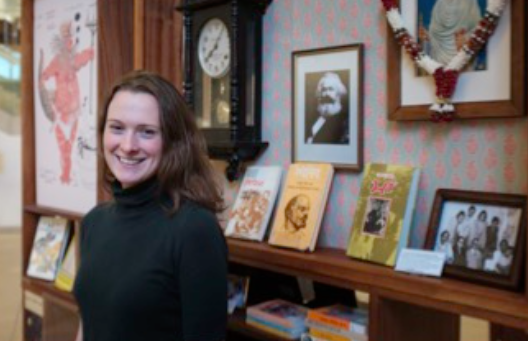Bollywood and Bolsheviks: Indo-Soviet Collaboration in Literature and Film, 1954-1991, is an oral history and exhibition project that charts the dynamic literary and cinematic exchange between India and the Soviet Union during the Cold War.
Combining a range of audio, video, and print material it highlights India’s role in shaping Soviet movie-going culture and the critical role that translation and new forms of print technology played in bringing Soviet literature to readers in India and Bangladesh. From the casting of Bolshoi ballerinas and Soviet circus artists in hit Bollywood productions to the engagement of hundreds of South Asian translators in Soviet publishing houses, the exhibit and website immerse the visitor in the interconnected Indo-Soviet media and technoscapes of the second half of the twentieth century.
The project's organizer is Jessica Bachman, a PhD student in the History Department, who also holds a master's degree in South Asian Studies from the University of Washington. Bachman spent the summer of 2016 in India gathering materials and conducting interviews. A Mellon Fellowship for Public Projects in the Humanities supported her research abroad. Bachman also worked with another History graduate student, Emma Hinchliffe, to produce three short documentary films, including Bollywood Blockbusters in the USSR featured below.
Bollywood and Bolsheviks: Bollywood Blockbusters in the USSR from Emma Hinchliffe on Vimeo.
One of the most significant aspects of the exhibit is the inclusion of indexed oral histories. Visitors to Allen Library can access two tablets to watch the interviews. According to Bachman, oral histories "help bring the visitor into the cultural worlds in which Soviet books and Indian films were consumed in India and the USSR during the Cold War." The inteviews are also available on the website.
For more background on the project and on the research process used by Bachman, see recent articles published by the College of Arts and Sciences and the Ellison Center for Russian, East European and Central Asian Studies.
Photo courtesy of the Ellison Center for Russian, East European and Central Asian Studies
